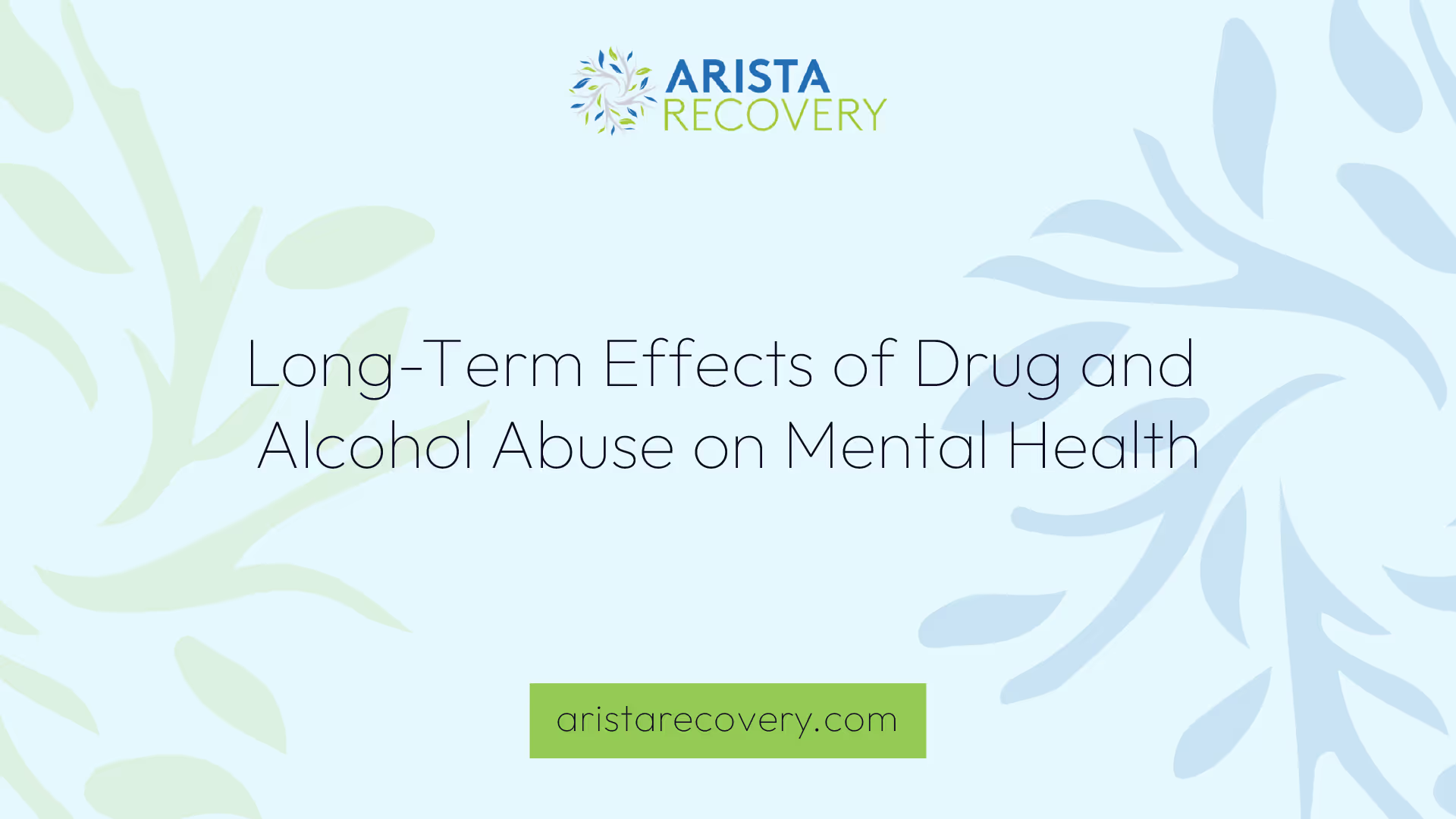Long-Term Effects of Drug and Alcohol Abuse on Mental Health

Many people who struggle with a substance use disorder also suffer from a mental health disorder. While addiction does not cause mental illness, an individual’s likelihood of struggling with mental health issues increases when they abuse drugs or alcohol. Unfortunately, many people may abuse drugs or alcohol to relieve feelings of pain or symptoms of mental illness. However, long-term, this only exacerbates one’s mental illness symptoms. Keep reading to learn how long-term substance abuse effects can be detrimental to your mental health and well-being.
At Arista Recovery, we are a Midwest addiction recovery center committed to helping individuals and their families break free of addiction. We understand how debilitating addiction can be on one’s mental health and well-being. That’s why we offer several different inpatient and outpatient treatment programs to best meet the recovery needs of as many patients as possible.
Ready to start your journey to recovery? Contact us today!

5 Substance Abuse Effects on Mental Health
Mental Health
Substance abuse affects your mental health for the worse in that substance abuse increases one’s likelihood of developing mental illness. While drug and alcohol abuse does not cause mental illness (or vice versa), there is an increased chance of developing psychiatric disorders, like anxiety or depression, if you are struggling with a drug addiction.
Therefore, many addicts oftentimes struggle with a dual diagnosis, which is a substance use disorder and mental health disorder. This can make your recovery journey that much more difficult because it’s essential you seek treatment for both conditions simultaneously. Otherwise, treating one condition but not the other puts you at an increased risk of relapsing.
Cognitive Impairment
Long-term drug abuse and alcohol abuse can potentially lead to permanent cognitive impairment. Many addicts experience this general decline in cognitive function because when you consume drugs they can eventually change your brain and reward system, which in turn makes it more difficult to think or focus. You experience this cognitive decline and loss of concentration because, over time, your brain craves more and more of the drug to experience a desired high, which ultimately gets in the way of you being able to think and complete everyday responsibilities.
Neurological Damage
Besides general cognitive decline, people with a substance use disorder also experience actual neurological damage and death of brain cells. This is because when you are consuming toxic substances, like drugs and alcohol, into your system, you are essentially feeding your body and brain cells poison, which inevitably leads to long-term neurological damage and further cognitive decline and function.
Changes in Memory & Learning
Along with general cognitive decline and neurological damage, an individual addicted to drugs will also experience a decline in their memory and learning. This is again linked to the changes the brain experiences while addicted to drugs. As you struggle with addiction, your brain will begin to crave more and more of your specific drug to reach a desired effect, negatively impacting fundamental cognitive functions like memory, learning, concentration, and more.
Changes in the Brain’s Reward System
Your brain’s reward system will become out of balance when addicted to drugs and alcohol. This is because when you consume drugs, you experience a spike of dopamine or a euphoric high. Eventually, with consistent drug abuse, your brain becomes addicted and used to receiving this high amount of dopamine, which explains why you need more and more of the drug to reach the same high. Similarly, this also explains why someone would lose interest in activities they once enjoyed, or activities that once gave them satisfaction, because it will appear “lesser than” because your brain’s reward system will have changed.
Top-Rated Midwest Addiction Treatment Center
Substance abuse effects can be detrimental to your mental health and well-being. Not only does drug and alcohol abuse increase one’s likelihood of struggling with mental illness, but addiction can change your brain for the worse. From poor concentration to memory loss, learning issues, and more, drug and alcohol abuse can lead to a general long-term decline in cognitive function, significantly interfering with one’s overall health and quality of life.
This is why seeking professional addiction treatment is so important. We at Arista Recovery are here to help you every step of the way to break free of addiction and achieve a long-term life of sobriety. No more suffering in silence with your addiction. Whether you are looking for comprehensive inpatient care or outpatient care options, we offer several treatment programs so you can receive tailored treatment right for you.If you or someone you know is struggling with addiction, help is available. Contact us today!
You’re not alone in this.
When mental health challenges and addiction intersect, it can feel isolating. At Arista, we offer compassionate, evidence-based, and trauma-informed care to help you heal, grow, and move forward.
You’re not alone in this.
When mental health challenges and addiction intersect, it can feel isolating. At Arista, we offer compassionate, evidence-based, and trauma-informed care to help you heal, grow, and move forward.
Support that moves with you.
You’ve taken a brave first step. At Arista Recovery, we’re here to help you continue with best-in-class care designed for long-term healing and support.
.webp)






